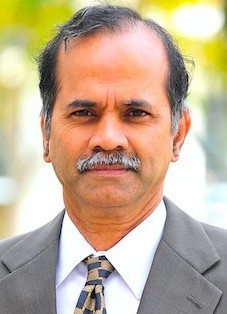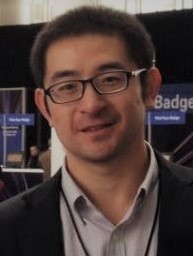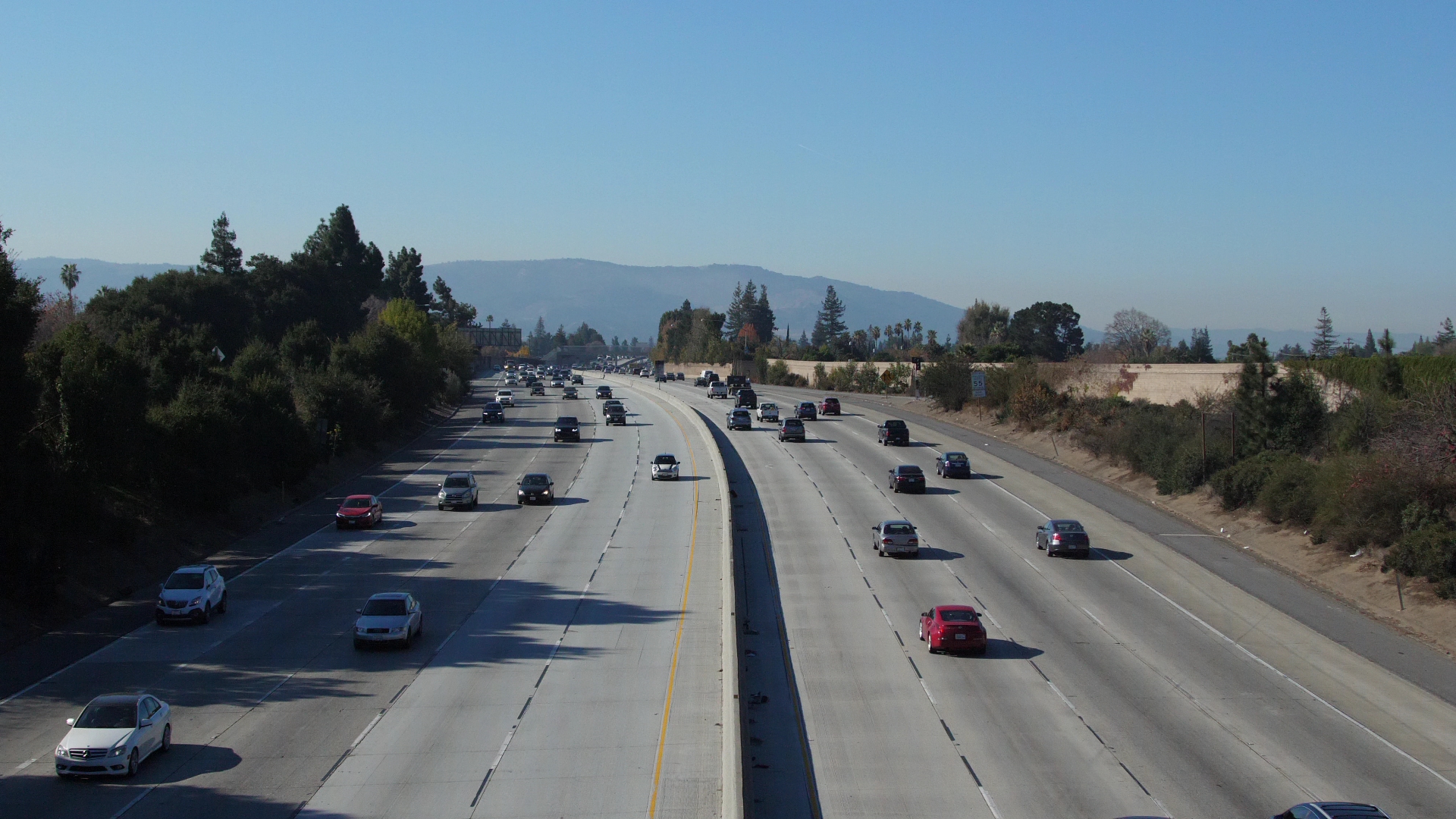2020 AI CITY CHALLENGE
Transportation is one of the largest segments that can benefit from actionable insights derived from data captured by sensors. Between traffic , signaling systems, transportation systems, infrastructure, and transit, the opportunity for insights from these sensors to make transportation systems smarter is immense. Unfortunately, there are several reasons why these potential benefits have not yet materialized. Poor data quality, the lack of labels for the data, and the lack of high-quality models that can convert the data into actionable insights are some of the biggest impediments to unlocking the value of the data. There is also need for platforms that allow for appropriate analysis from edge to cloud, which will accelerate the development and deployment of these models. The AI City Workshop at CVPR 2020 will specifically focus on ITS problems such as:
- Turn-counts used by DOTs for signal timing planning
- City-scale multi-camera vehicle re-identification w. real and synthetic training data
- City-scale multi-camera vehicle tracking
- Anomaly detection – detecting anomalies such as lane violation, wrong-direction driving, etc.
We solicit original contributions in these and related areas where computer vision and specifically deep learning have shown promise in achieving large-scale practical deployment that will help make cities smarter.
To accelerate the research and development of techniques, the 4th edition of this Challenge will push the research and development in two new ways, First, the challenge will introduce a track that not only measures effectiveness on tasks that are relevant to DOTs but also measures the efficiency of completing these tasks and the ability of systems to operate in real-time. To our knowledge, this will be the first such challenge that combines effectiveness and efficiency evaluation of tasks needs by DOTs for operational deployments of these systems. The second change in this edition will be the introduction of augmented synthetic data for the purpose of substantially increasing the training set for the task of re-identification.
Important Dates
-
Challenge kick off: Tuesday, Jan 7 -
Data sets shared with participants: Friday, Jan 10 -
Evaluation server open to submissions: Saturday, March 7 -
Challenge track submissions due: Thursday, April 9 (11:59 PM, Pacific Time)
Evaluation submission is closed and rankings are finalized. -
Workshop papers due: Monday, April 13 (09:00 AM, Pacific Time)
Since our review is not double-blind, papers should be submitted in final/camera-ready form. -
Final decisions to authors: Saturday, April 18
All authors are notified in CMT. There are about 24 hours to prepare for the final version of accepted papers. -
Final papers due: Sunday, April 19 (11:59 PM, Pacific Time)
All camera ready paper should be uploaded to CMT to be published by CVPR 2020. The accepted workshop papers will be accessible online at IEEE Xplore Digital Library and CVF Open Access. -
Open source on GitHub (training code + testing code + additional annotation) due: Sunday, May 10 (11:59 PM, Pacific Time)
All the competitors/candidates for awards MUST release their code for validation before decision of awardees. The performance on the leaderboard has to be reproducible without the use of external data. -
Presentation of papers and announcement of awards: Monday, June 15
Notice
- 2020/05/11
- All accepted workshop papers are finalized. The workshop summary paper can be found here.
- The github repos from the top teams can be found here. The final prize winners will be determined after our code verification.
- People can continue working on the AI City Challenge datasets. Both the datasets and evaluation server will remain open to the public. Check here for data access instructions.
- 2020/03/20
- The instructions for workshop paper submission is now available. For more details please refer to Paper Submission page.
- We have added a supplementary file to the Track 1 package. For more details please refer to Track1-download page.
- We have updated the evaluation kit in the Track 3 package. For more details please refer to Track3-download page.
- 2020/03/07
- The evaluation server is now open for submission. For more details please refer to Evaluation System page.
- There is an update on the track 1 dataset. For more details please refer to Track1-download page.
- There is an update on the track 3 dataset. For more details please refer to Track3-download page.
TENTATIVE WORKSHOP AGENDA
CVPR 2020 has confirmed to be completely virtual given the current unusual circumstances.
For detailed workshop schedule please refer to the workshop page.
ORGANIZING COMMITTEE

Milind Naphade
NVIDIA Corporation

Rama Chellappa
University of Maryland, College Park

David Anastasiu
Santa Clara University

Anuj Sharma
Iowa State University

Ming-Ching Chang
University at Albany – SUNY

Xiaodong Yang
QCraft

Shuo Wang
NVIDIA Corporation

Zheng Tang
Amazon

Liang Zheng
Australian National University
CITATIONS
Please cite the following papers accordingly if you choose to work with our datasets or refer to the previous challenge results:
Vehicle MTMC dataset – CityFlow: A City-Scale Benchmark for Multi-Target Multi-Camera Vehicle Tracking and Re-Identification
@InProceedings{Tang_2019_CVPR,
author = {Zheng Tang and Milind Naphade and Ming-Yu Liu and Xiaodong Yang and Stan Birchfield and Shuo Wang and Ratnesh Kumar and David Anastasiu and Jenq-Neng Hwang},
title = {CityFlow: A City-Scale Benchmark for Multi-Target Multi-Camera Vehicle Tracking and Re-Identification},
booktitle = {The IEEE Conference on Computer Vision and Pattern Recognition (CVPR)},
month = {June},
year = {2019}
}
Synthetic 3D vehicle dataset – Simulating content consistent vehicle datasets with attribute descent
@InProceedings{Yao19VehicleX,
author={Yue Yao and Liang Zheng and Xiaodong Yang and Milind Naphade and Tom Gedeon},
title = {Simulating content consistent vehicle datasets with attribute descent},
howpublished = {arXiv:1912.08855},
year = {2019}
}
2020 challenge summary paper – The 4th AI City Challenge
@InProceedings{Naphade20AIC20,
author = {Milind Naphade and Shuo Wang and David C. Anastasiu and Zheng Tang and Ming-Ching Chang and Xiaodong Yang and Liang Zheng and Anuj Sharma and Rama Chellappa and Pranamesh Chakraborty},
title = {The 4th AI City Challenge},
booktitle = {The IEEE Conference on Computer Vision and Pattern Recognition (CVPR) Workshops},
month = {June},
year = {2020},
pages = {2665–2674}
}
2019 challenge summary paper – The 2019 AI City Challenge
@InProceedings{Naphade19AIC19,
author = {Milind Naphade and Zheng Tang and Ming-Ching Chang and David C. Anastasiu and Anuj Sharma and Rama Chellappa and Shuo Wang and Pranamesh Chakraborty and Tingting Huang and Jenq-Neng Hwang and Siwei Lyu},
title = {The 2019 AI City Challenge},
booktitle = {The IEEE Conference on Computer Vision and Pattern Recognition (CVPR) Workshops},
month = {June},
year = {2019},
pages = {452–460}
}
2018 challenge summary paper – The 2018 AI City Challenge
@inproceedings{Naphade18AIC18,
author={Milind Naphade and Ming-Ching Chang and Anuj Sharma and David C. Anastasiu and Vamsi Jagarlamudi and Pranamesh Chakraborty and Tingting Huang and Shuo Wang and Ming-Yu Liu and Rama Chellappa and Jenq-Neng Hwang and Siwei Lyu},
title = {The 2018 NVIDIA AI City Challenge},
booktitle = {Proc. CVPR Workshops},
pages = {53-–60},
year = 2018
}
2017 challenge summary paper – The NVIDIA AI City Challenge
@inproceedings{Naphade17AIC17,
author={Milind Naphade and David C. Anastasiu and Anuj Sharma and Vamsi Jagrlamudi and Hyeran Jeon and Kaikai Liu and Ming-Ching Chang and Siwei Lyu and Zeyu Gao},
title={The NVIDIA AI City Challenge},
booktitle = {Prof. SmartWorld},
address = {Santa Clara, CA, USA},
year = 2017
}
